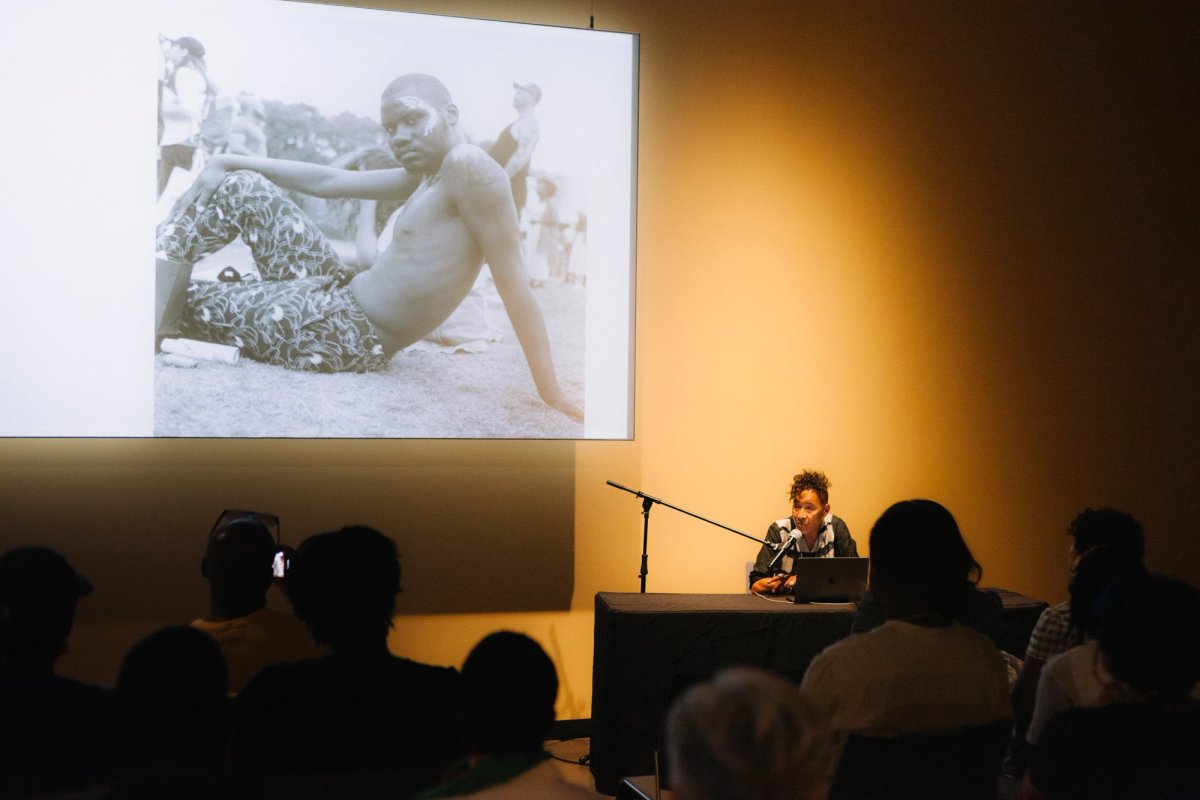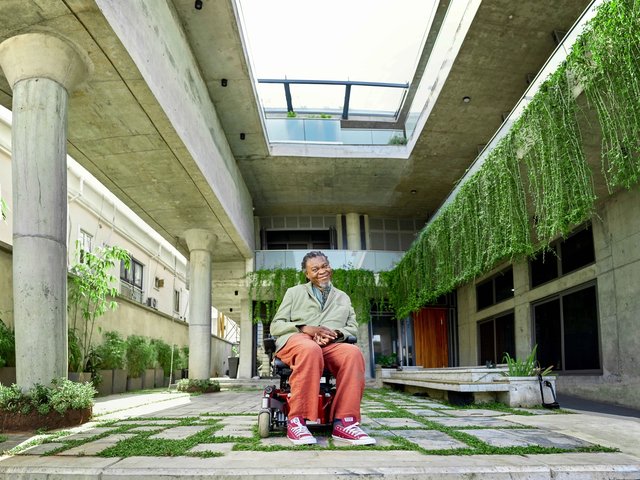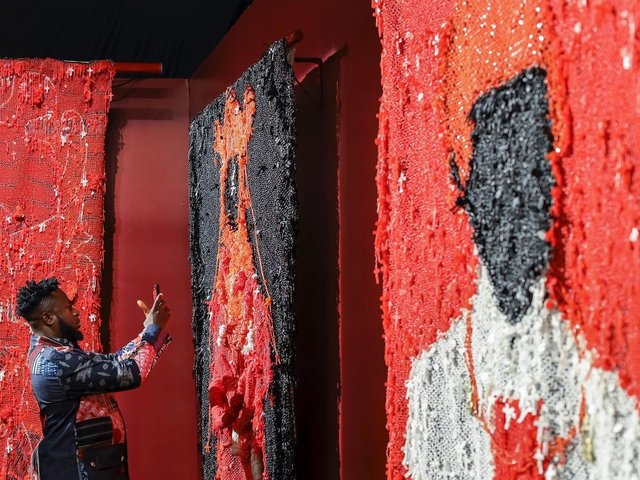The second week in November marks the beginning of Lagos Art Week 2025, which brings together a host of solo and group exhibitions alongside a range of art world events. This year, the event is bigger than ever—and includes new opportunities for reflection and growth.
Returning to the programme is the 10th edition of Art X Lagos, West Africa’s leading international art fair, which features special projects including the exhibition An Exacting Eye by J.D. ‘Okhai Ojeikere, the legendary Nigerian photographer whose work spanned over six decades. The fair’s participants include Yenwa Gallery, which has brought the Cameroonian-French conceptual artist Pierre-Christophe Gam’s The Sanctuary of Dreams to Africa for the first time in its Lagos space, and Tiwani Contemporary, which is hosting the first Lagos solo show of designer and artist Nifemi Marcus-Bello.
Also in Lagos, and for the first time in Ibadan too, the 15th edition of Lagos Photo Festival is another returning fixture. The festival explores various forms of incarceration with a series of projects including exhibitions, screenings and collaborations across the city. For its first edition as a biennial, the event will be on view through 29 November.
Earlier this week, a new and slightly different Art Week affair took place: the Re: assemblages symposium, hosted by the Alliance Française de Lagos, organised by the Guest Artists Space and Yinka Shonibare Foundations and curated by Naima Hassan. The event brought together cultural practitioners including artists, curators, archivists and scholars from across Africa and the world in wide-ranging conversations about African and Afro-diasporic art archives.
These are The Art Newspaper’s three key takeaways from the event.
Archives are not just about the past—and access to them in the present is key
“To host this here, now, is to recognise that African and Afro diasporic archives are not merely reflections of the past,” said Moni Aisida, the executive director of the Guest Artists Space Foundation, in the symposium’s opening speech. “They are tools for shaping the future. They are, as this programme proposes, living, contested and future-shaping spaces.”
This statement was something of a nod to the growing efforts to preserve and digitise archives across Africa. It highlighted the importance of this work not as a trend, but as a means to better reflect and tell the nuanced stories of the continent.
The theme of the archive was continued throughout the keynote panel, Curatorial History and African Archives. During the event, Serubiri Moses, the New York-based Ugandan curator, editor and author, expressed concern about the archives of late curators Okwui Enwezor and Bisi Silva being “locked away”, often requiring special knowledge of an estate or persons and permission to access the materials.
Moses went on to reference Missla Libsekal, the Art X Lagos curator at large, who earlier in the conference described using the library of the Museum of African Art in Washington to access copies of Nigeria Magazine for her curatorial research on Lagos for the fair. This raised the question of who can access historical books, magazines and other materials once they have been moved to western institutions. However, it is important to note that the number of libraries across Africa that are easily accessible is growing.

Annotations Activation at ART X Library, 2024
Courtesy of ART X Lagos and G A S Foundation.
Restitution requires action, but also language and knowledge
One of the most used words at the symposium was “epistemic”—relating to knowledge or the study of the same—and one might say rightfully so. Restituting the artefacts, objects, or belongings of Africa is, of course, essential. However, as was recently stated by Chao Tayiana Maina, the cofounder of the Open Restitution Africa, so is furthering the language and knowledge systems used in discussions about restitution, which so often favour the west.
Addressing this issue during a panel titled Destabilizing the Archive: Towards Ecosystems of Repair and Renewal, Samba Yonga, the cofounder of the Women’s History Museum of Zambia, suggested creating “multi-vocal archives” that would allow communities to add “context, memory and interpretation alongside institutional records”.
The support and the contributions of women must be recognised
The need to recognise, support and highlight the voices and history of women was emphasised during several of the symposium’s panels, including Rematriating the Archive. The presentation by Aisha Adamu Augie, the director general of the Centre for Black and Pan Arts & Civilization, described as a Pan African agency domiciled at Nigeria’s Ministry of Arts, Culture & Creative Economy, brought to fore the many women and their contributions. She particularly highlighted the success of the 1977 international arts festival FESTAC77, but notes that women’s stories are often understated in the re-telling of the history of the landmark event.
Meanwhile Sylvia Arthur, the founder of the Accra-based Library of Africa and the African Diaspora, presented her recent project A Women’s Oral History of West Africa, which was a necessary reminder of the importance of how women keep stories about their communities alive through many generations. Independent curator Jareh Das’s presentation on the practice of renowned Nigerian porter and ceramist Ladi Kwali was compelling, serving in part as a call for better documentation and recognition of her legacy.




